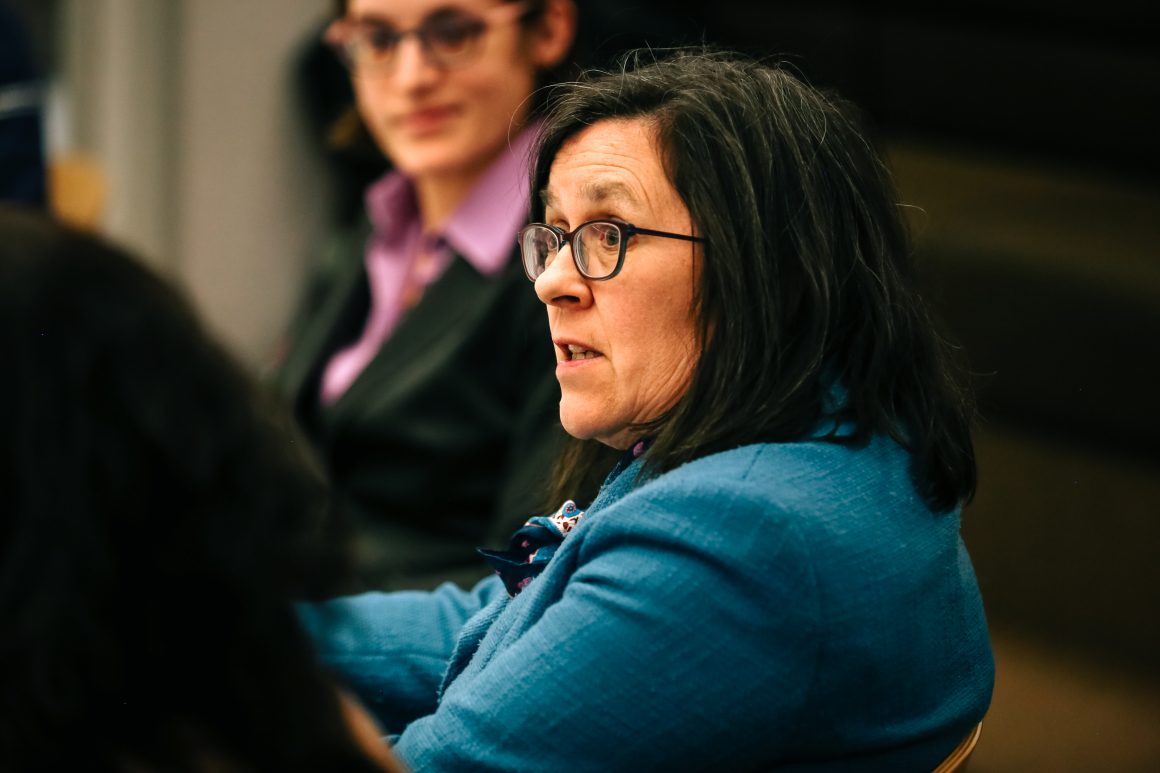
Proposed academic misconduct policy undergoes review
By James Falls, November 30 2018 —
At the Oct. 23 meeting of the Students’ Union Student Legislative Council, a new academic misconduct policy proposal was discussed. However, it and was met with concern about the language used in the policy, as well as its scope.
The University of Calgary vice-provost student experience Susan Barker said that the new policy has taken U of C’s existing academic misconduct ‘rules and regulations’ and converted them to a ‘policy’ framework, allowing for better application. Barker also said that the new policy will lead to the development of procedures, allowing for consistent application of the rules across campus.
Several SLC members asked for clarification about certain terms defined in the policy, which included the word “dishonesty.” In an interview with the Gauntlet, SU vice-president academic Jessica Revington said removing the word from policy is a goal for the SU.
“My focus is really taking away the word ‘dishonesty’ and looking more at the impact that their behaviour has on academic integrity as a whole,” Revington said.
U of C legal counsel Deborah Book was open to the possibility of alternate language in the policy, and Susan Barker later confirmed the language was altered.
Revington also expressed a desire for the policy to define ‘academic integrity.’
“I’d really like to see a piece that explains to students what academic integrity is, why it’s important and how it applies to students on a regular basis,” Revington said.
When asked about the potential to include academic integrity in the policy, Book also noted that its inclusion would be inappropriate. Instead, she said she prefers to focus the policy on what is considered misconduct and how it can be identified and investigated.
Concerns around the policy’s language were shared by other members of SLC. During the Oct. 23 council, faculty of nursing representative Candace Cho said that using the term “unauthorized collaboration” in the policy may discourage students from helping one another unless explicitly authorized by an instructor.
Barker later told the Gauntlet that Cho’s feedback was considered.
“We’ve changed that and the wording now reads ‘cooperating or collaborating in completing academic activities when the instructor has indicated the assignment is to be completed on an individual basis,’ ” Barker said. “It’s not really a little edit of what was in there before — we’ve really changed it completely.”
The new policy also covers the use of web-sharing applications like CourseHero and OneNote. During the Oct. 23 meeting, arts representative Dana Nasser asked if this was considered academic misconduct. Barker went on to say that the use of these applications raised several issues that necessitate a case-by-case analysis and that they will try to find some clarity in the use of these applications.
Revington considered this to be an example where the term “dishonesty” is inappropriate.
“When using course-sharing sites like CourseHero or OneNote, students might not be aware that posting their notes is a violation of academic integrity and being able to explain that to students goes beyond just a policy,” Revington said.
Barker agreed with this, adding the complexity of student behaviour must be considered.
“What we need to focus on are the behaviours,” Barker said. “Some of the behaviours that are contrary to university policy probably don’t find under academic misconduct, because really the academic misconduct is about doing something for academic gain,” Barker said.
Revington believes the policy needs further consultation with the campus community.
“I know there’s a new academic integrity officer working out of the Student Success Centre and I would really like to see her being consulted to see further consultation with the Student’s Union, as well as with students as a whole so that the definition of academic integrity that the University of Calgary comes up with is representative not just of the university’s values, but of the students values as a whole,” Revington said.
According to Barker, academic integrity will be a point of focus in the policy.
“We’ll be focusing on that in the coming months. We already had Academic Integrity Week and some of the materials were shared at that point,” Barker said. “What we’ve found with academic integrity is that it’s really contextual, it’s really different for an undergraduate student than a grad student who’s doing a lot of research in their program.”
The policy will face final approval in March, with more discussions and recommendations from General Faculties Committees (GFC) coming in January.
“It seems pretty straightforward, but to go through proper consultation and approval does take a little time,” Barker said. “If groups want to chat with us, we’re pretty open and responsive to groups if they wish to learn more. And of course, there’s students on all of the GFC committees, so we have good student thoughts.”
